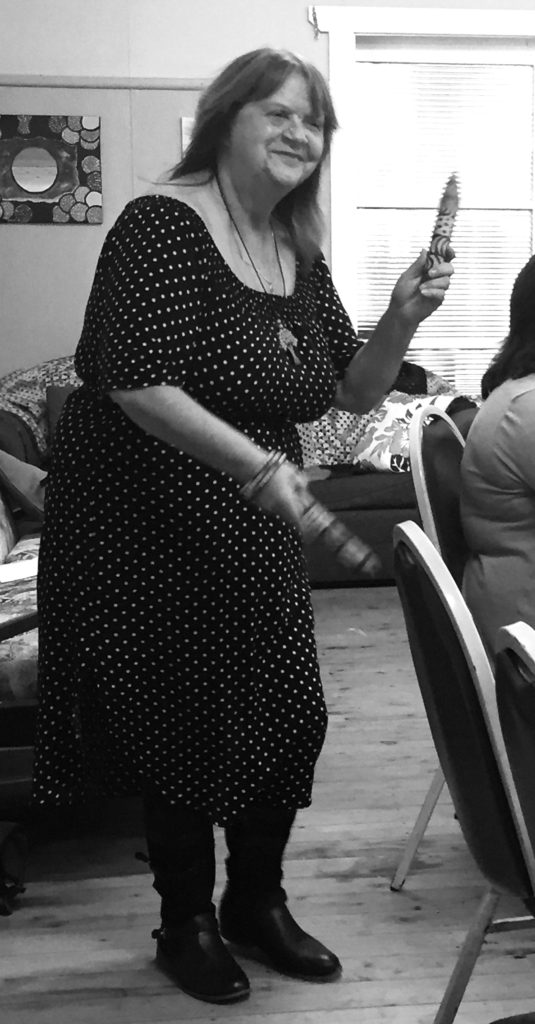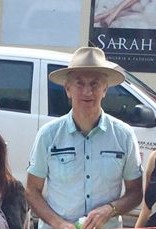Jannice Luland is our guest on episode 26 of Talk the Walk. Jannice is a proud Aboriginal woman and direct descendant of the Wodiwodi and Walbunja peoples of the far South coast of NSW. After a career spanning over 30 years in child protection, out of home care, justice health, mental health, domestic and family violence and sexual assault, Jannice finally graduated with her Masters of Social Work in 2015.
Aunty Jeno, as she is known in her community of Nowra in NSW, is passionate about supporting women and young people in the field of domestic violence and sexualised violence, and has a special interest in the impact of intergenerational trauma on the Stolen Generations.
As well as being employed as a Healing Counsellor at Waminda, Jannice currently serves on the Aboriginal Elders committee and cultural committee. She is a huge advocate of social work practice frameworks which incorporate cultural healing practices. In our conversation we dive deep into what this looks like and what it means for Jannice to be able to incorporate her culture into a strong values and evidence-based model of therapeutic care.
In this episode, we explore:
- A brief overview of the services at Waminda, an Aboriginal owned and run health and well-being service
- How Waminda applied Aboriginal healing principles to address issues of low engagement with Aboriginal women accessing sexual assault and domestic violence services
- How Jannnice arrived at social work after landing her first job as an uneducated single mum
- How and why Jannice keeps culture central in her social work practice framework
- Reflections on studying the social work degree and the lack of theoretical frameworks that intersect Indigenous cultures
- Exploring the benefits, responsibilities and achievements as a member of the Elders group and cultural committee within the organisation
- The theory and cultural knowledge behind the Singing for Healing program
- Jannice’s desire to connect with other Aboriginal social workers across Australia to explore cultural therapeutic approaches
- The importance of accessing cultural social work supervision
- The values Jannice says are important in overcoming challenges within the work
- Critical aspects of a healing counselling service that contribute to Closing The Gap
- Role models and special people that have influenced Jannice’s life and career in social work and a sense of gratitude
- Inspiring Aboriginal women to take up social work
- That sparkling moment with the clapsticks
The sound is less than ideal at the beginning of this interview, but does improve, so please stick with it.
To listen, simply click on the Play button below or listen via the Stitcher App for iOS, Android, Nook and iPad.

You can also subscribe to podcast and blog updates via email from the Menu on the Home Page.
Don’t forget, if you or someone you know would make a great interview on ‘Talk the Walk’, send us an email from the Contact Page.
Things to follow up after the episode
Trauma Trails by Judy Atkinson
Waminda website
Follow Waminda on Facebook
Contact Jannice Luland on jannicel(at)waminda(dot)org(dot)au
Podcast: Play in new window | Download
Subscribe: RSS



 Welcome back to ‘Talk the Walk’ in 2018. Supervision goes under the microscope in this podcast episode with my guest, Barry Sullivan. Like many social workers, Barry came to the profession after more than 20 years in teaching. Arriving in Darwin in 1998, Barry started out in school counselling, before joining Relationships Australia where he has been ever since.
Welcome back to ‘Talk the Walk’ in 2018. Supervision goes under the microscope in this podcast episode with my guest, Barry Sullivan. Like many social workers, Barry came to the profession after more than 20 years in teaching. Arriving in Darwin in 1998, Barry started out in school counselling, before joining Relationships Australia where he has been ever since.